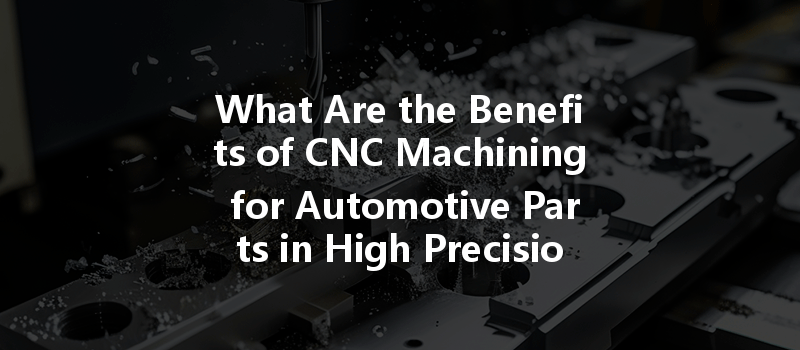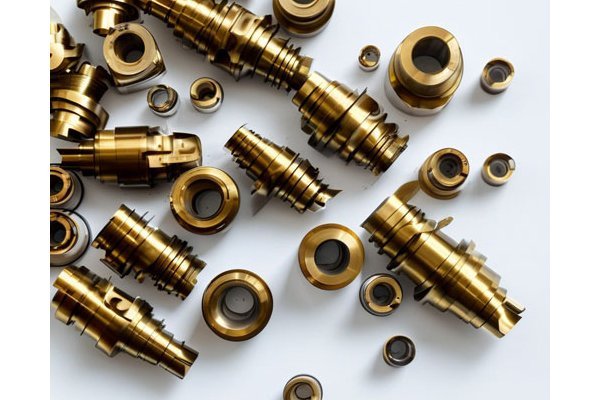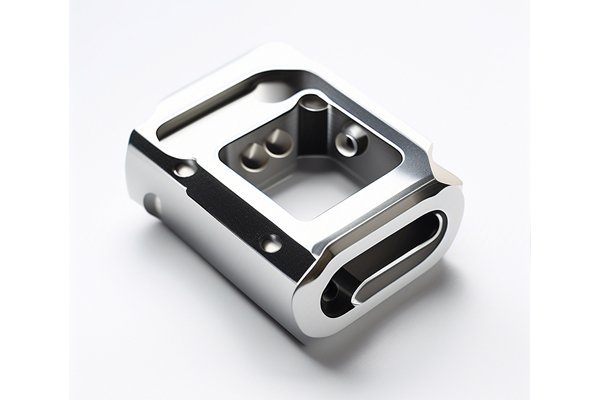: A Statistical Insight
Did you know that the global CNC machining market was valued at over $63 billion in 2021 and is projected to grow significantly in the coming years? This surge in demand is particularly driven by the automotive industry, where precision and efficiency are paramount. As the demand for high-quality automotive parts continues to escalate, manufacturers are increasingly turning to CNC (Computer Numerical Control) machining as a reliable solution to meet these stringent requirements. In this blog, we will explore the numerous benefits of CNC machining for automotive parts, how it delivers high precision manufacturing, and why it is a critical component of modern automotive supply chains.
Understanding CNC Machining
Before diving into its benefits, let’s clarify what CNC machining is. CNC machining is a subtractive manufacturing process where computer software controls machine tools to create parts and components from various materials. This process can produce highly detailed and complex geometries that would be impossible or impractical through traditional manufacturing methods.
The Automotive Industry: A Precision-Driven Landscape
The automotive industry thrives on mass production without compromising on quality. Each vehicle consists of thousands of components, from engine parts to interior elements, all requiring high-precision machining. Moreover, with advancements in technology, requirements for lightweight, durable materials have become standard, necessitating innovative approaches to manufacturing.
Benefits of CNC Machining for Automotive Parts
CNC machining delivers unparalleled precision, often achieving tolerances within ±0.01 mm. This capability is crucial in the automotive sector where even the slightest deviation can lead to performance issues. When it comes to the manufacturing of components like engine blocks, crankshafts, and transmission parts, precision becomes non-negotiable.
Vehicles are becoming increasingly advanced, demanding complex shapes and designs. CNC machines can produce intricate geometries efficiently, allowing engineers to experiment with innovative designs. Whether it’s a specialized bracket or a complicated housing, CNC machining is capable of handling complex requirements.
The automotive industry employs a variety of materials, including metals, plastics, and composites. CNC machining accommodates this diversity, successfully working with materials such as aluminum, stainless steel, magnesium, and carbon fiber. This versatility allows for the creation of lightweight parts that do not sacrifice strength.
CNC machines can operate continuously, significantly speeding up production times. Traditional machining methods often require manual labor and extended intervention, while CNC machines can produce parts around the clock. This efficiency can drastically reduce lead times in manufacturing, allowing companies to respond quickly to market demands.
By utilizing advanced software and precision cutting techniques, CNC machining is an effective way of minimizing waste in the manufacturing process. It uses only the necessary material required for the component, which not only saves money but also promotes sustainability—an increasingly important factor in automotive manufacturing.
Once a CNC machine is programmed, it can replicate the same process consistently with minimal human intervention. This results in uniform parts that meet the required specifications every time. Consistent quality is crucial, especially in industries like automotive where safety and reliability are paramount.
The rise of Industry 4.0 has seen increased integration of CNC machines with IoT (Internet of Things), big data, and AI (Artificial Intelligence). These technologies facilitate real-time data analysis for predictive maintenance, enhancing the reliability and efficiency of the manufacturing process.
Addressing Common Challenges in Automotive Manufacturing
While CNC machining offers vast benefits, manufacturers often encounter challenges. Here’s how CNC machining can address some common hurdles faced in the automotive sector:

Tight tolerances are often needed for parts that must fit together perfectly. CNC machines excel in maintaining these tolerances throughout production runs, ensuring that all components fit as intended.
Although initial setup costs may be high, the long-term savings due to reduced waste, increased efficiency, and less rework make CNC machining economically viable. Additionally, the ability to mass-produce parts can lower per-unit costs.
Before mass production, creating prototypes to test design functionality is crucial. CNC machining allows for rapid prototyping, enabling manufacturers to quickly iterate designs and make necessary adjustments without significant lead times.
As demand fluctuates, automotive manufacturers need flexibility in their operations. CNC machining can easily be scaled up or down based on production needs, allowing companies to adapt to changing market conditions efficiently.
Best Practices for Implementing CNC Machining in the Automotive Sector
To fully leverage the capabilities of CNC machining, automotive manufacturers should consider the following best practices:
Ensuring that operators are well-trained to handle CNC machines and software maximizes the technology’s effectiveness. Continuous training programs can also help workers stay updated on the latest advancements in CNC technology.
The durability and performance of automotive components start with high-quality materials. Investing in the best materials ensures that the final product meets performance and safety standards.
When designing parts for CNC machining, consider factors such as tool paths and accessibility. Designs that are optimized for CNC production can reduce machining time and costs.
Regular maintenance and calibration of CNC machines can prevent downtime and ensure consistent output quality. A proactive maintenance schedule minimizes the risk of production disruptions.
: The Future of CNC Machining in Automotive Manufacturing
In conclusion, CNC machining is a transformative technology that greatly benefits the automotive industry. Its high precision, efficiency, and versatility make it an ideal choice for manufacturing high-quality automotive parts. As the industry continues to evolve, embracing CNC machining not only enhances production capabilities but also supports the drive towards innovation and sustainability.
As we reflect on the importance of CNC machining in automotive manufacturing, it becomes clear that this technology is not just another tool; it is a key driver of progress in an industry that values safety, performance, and reliability above all. For manufacturers, understanding and implementing CNC machining techniques is crucial in staying competitive in this dynamic market. The embrace of CNC technology is not merely an option; it is a necessity for future growth and success in automotive manufacturing.
Understanding the core benefits and strategies surrounding CNC machining will empower manufacturers to make informed decisions, ultimately positioning them for success in the ever-evolving landscape of the automotive industry. As you ponder over this information, consider how CNC machining can bring value to your operations and why it’s essential for manufacturers to keep this technology at the forefront of their strategies.






